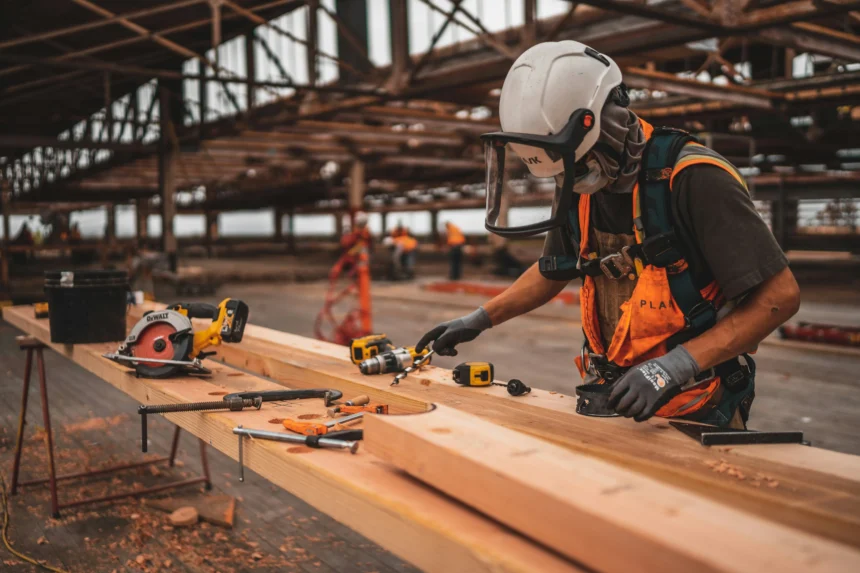Are you planning to assess the energy efficiency of your home or property but unsure how to find the right Building Energy Rating (BER) assessor? Choosing a qualified BER assessor is crucial for obtaining an accurate and reliable energy performance rating. With the right guidance, you can make an informed decision, ensuring that your property’s energy efficiency is assessed accurately and effectively. In this comprehensive guide, we’ll provide you with essential tips and best practices to help you choose the most suitable BER assessor for your needs.
Understanding BER and Its Importance
What is BER?
Building Energy Rating (BER) is a standardized rating system that assesses the energy efficiency of buildings. It’s similar to the energy label found on household appliances, providing a clear indication of a building’s energy performance.
Why is BER Important?
A BER assessment gives property owners valuable insights into their property’s energy efficiency, helping identify areas for improvement. It’s also crucial for buyers and tenants seeking energy-efficient properties, influencing their decision-making process.
The Role of a BER Assessor
What Does a BER Assessor Do?
A BER assessor is a professional trained to evaluate the energy performance of buildings. They use specialized software and follow standard procedures to calculate the BER, taking into account various factors like insulation, heating systems, and renewable energy sources.
Why Choose a Qualified Assessor?
Selecting a qualified and experienced BER assessor ensures that the assessment is accurate and compliant with regulations. A skilled assessor can also provide valuable advice on improving your property’s energy efficiency.
Finding a Qualified BER Assessor
Choosing the right BER assessor is a crucial step. Let’s quickly review how to find one.
Research and Referrals
Start by researching online and asking for referrals from friends or professionals like Build Pro, who have experience with energy-efficient building practices.
Checking Qualifications
Ensure that the assessor is registered with the relevant national authority and has the necessary qualifications and training to perform BER assessments.
Experience Matters
Look for an assessor with a solid track record and experience in assessing similar properties to yours. Experienced assessors can provide more accurate and insightful evaluations.
Evaluating BER Assessors
Assessing Their Expertise
Evaluate the assessor’s knowledge of energy efficiency, building materials, and the latest regulations. A good assessor should be able to answer your questions confidently and provide relevant information.
Understanding Their Process
Ask about the assessor’s process, including how they conduct the assessment, the tools they use, and the duration of the assessment. This will give you an idea of their professionalism and efficiency.
Reading Reviews and Testimonials
Look at online surveys and request tributes from past clients. This can provide insights into the assessor’s reliability and the quality of their service.
Preparing for the BER Assessment
Gathering Necessary Documents
Before the assessment, it’s important to gather all relevant documents about your property. These include detailed building plans, which can help the assessor understand the layout and structural aspects of your property.
Additionally, information about your heating systems, such as the type and age of the boiler or any renewable energy sources like solar panels, is essential. If you’ve made any energy-efficient improvements, such as installing double-glazed windows or additional insulation, have the details and receipts ready. This comprehensive documentation enables the assessor to make a more precise evaluation of your property’s energy performance.
Accessibility and Cooperation
The success of the BER assessment largely depends on the assessor’s ability to access all areas of your property. Ensure that spaces like the attic, utility rooms, and any external buildings are easily accessible. Remove any obstacles that might hinder a thorough inspection. Your cooperation is also key.
Furthermore, be prepared to answer questions about your home’s energy usage, such as the average thermostat settings in winter or the type of lighting used. Open communication and collaboration during the assessment process can significantly contribute to the accuracy and efficiency of the final evaluation.
After the BER Assessment
Understanding the BER Report
Once the assessment is complete, the assessor will provide a BER certificate and advisory report. Understand what the ratings mean and what recommendations are given for improving energy efficiency.
Implementing Recommendations
After receiving your BER assessment report, it’s important to seriously consider the recommended measures to enhance your property’s energy efficiency. These recommendations are tailored to your specific property and can range from simple changes like switching to energy-efficient light bulbs to more significant alterations such as upgrading insulation or installing renewable energy systems like solar panels.
Implementing these measures can lead to considerable long-term savings on energy bills, as more energy-efficient homes generally cost less to heat and power.
Moreover, these improvements can significantly increase the overall value of your property, making it more attractive to potential buyers or renters who are increasingly seeking energy-efficient living spaces. Taking action on these recommendations not only benefits your wallet but also contributes to environmental sustainability.
Staying Informed and Updated
Keeping Up with Regulations
Energy efficiency regulations are continually evolving in response to advancements in technology and environmental goals. It’s crucial to stay informed about these changes to ensure your property complies with the latest standards.
Further, keeping up-to-date can involve regularly checking government websites, subscribing to newsletters from energy efficiency organizations, or maintaining contact with energy professionals. Staying informed ensures that your property doesn’t fall behind in efficiency standards, which can be important for legal compliance, especially if you’re considering selling or renting out your property.
Regular Re-assessments
As you make improvements to your property’s energy efficiency, consider having regular re-assessments conducted. This is especially important after undertaking significant upgrades or renovations that impact energy use.
Also, regular re-assessments ensure that your BER certificate reflects the most current state of your property, providing an up-to-date representation of its energy efficiency. An updated BER can be a valuable asset in demonstrating the energy efficiency of your property to potential buyers or renters, and it can also give you a clear picture of the effectiveness of the improvements you’ve made, guiding you in future energy-saving decisions.
In A Nutshell
Opting for the right BER assessor is a critical step in understanding and improving your property’s energy efficiency. By following these tips and best practices, you can find a qualified professional who will provide accurate assessments and valuable advice. If you’re looking to enhance the energy efficiency of your home, whether through renovations or, Build Pro is here to help. As expert building contractors in Dublin, we specialize in creating energy-efficient and sustainable homes. Contact us today to learn more about how we can assist you in your journey toward a greener, more energy-efficient home.







